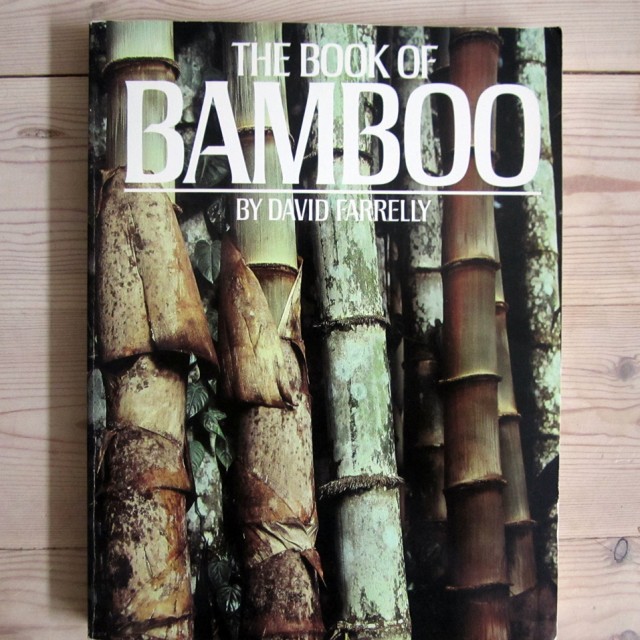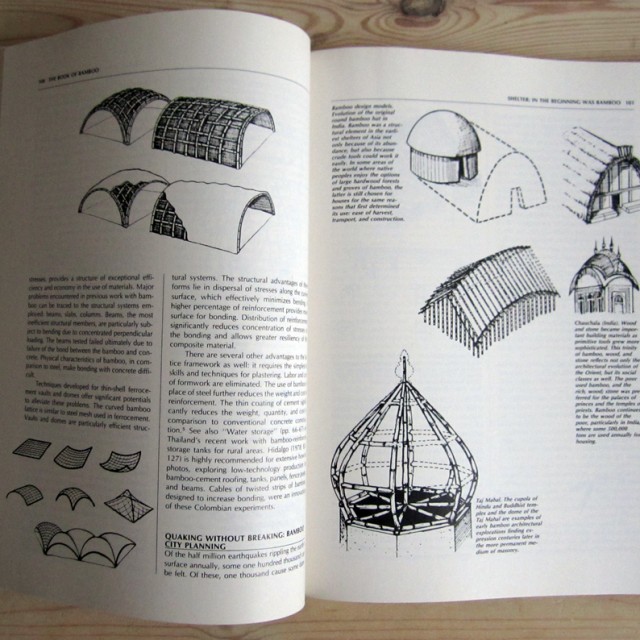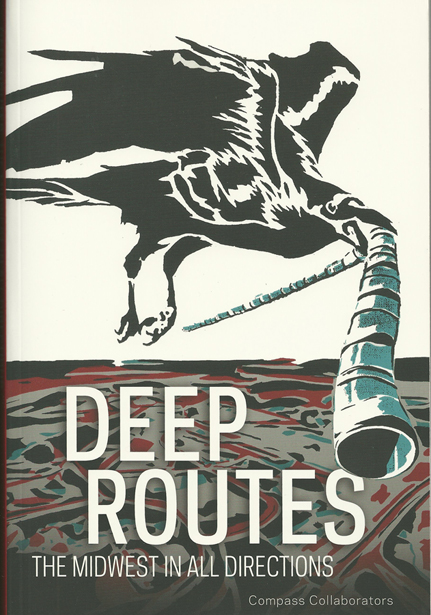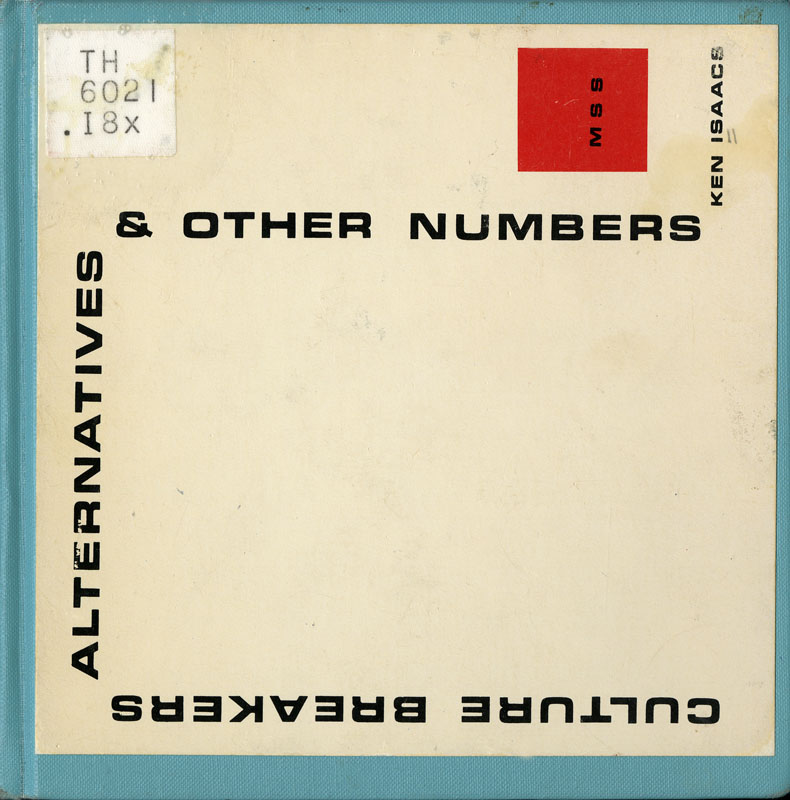Book Review-The Book of Bamboo
A Mythological Quarter Book Review.
Published in 1984 by Sierra Club Books, The Book of Bamboo is a brief history of the plant and a catalog of its uses, which are many. David Farrelly, the author, writes about ‘the wood of the poor,’ in a poetic fashion designed to make people fall in love with the plant. The Book of Bamboo is like a Whole Earth Catalog for bamboo – part guidebook, part collection of aphorisms, part treatise on bamboo as a way of life. It’s not hard for Farrelly to argue the environmental benefits of a plant that provides so many uses and reproduces itself so quickly.
You may know that bamboo is a resilient and fast growing plant that has been used as a building material for centuries but it has also been used to make a slew of other items useful to civilizations from paper and guns to bicycles and beer. The book tells us that it has been used both for scaffolding during the construction of skyscrapers in Japan and in the creation of medicine for asthma.
Bamboo, which grows from a rhizome, is known as a ‘friend of the people’ in China. When The Book of Bamboo was published, bamboo was a relatively new commercial crop in the West. Now there are several companies growing bamboo in the United States, as well as a bamboo research center, the Earth Advocates Research Farm, in Summertown, TN, where one can go to learn about different species of the plant.
Farrelly, in his promotion of bamboo, suggests that the diverse building material could also be a welcome addition to contemporary urban landscape design. Bamboo, because it is fast growing and drought resistant, is hardy in adverse climates while providing much needed greenery for city dwellers who need oxygen renewal. He also suggests that our collective psyches could benefit from being in closer contact with green things and there again-bamboo!The perfect solution. Interesting.
Farrelly’s book moves bamboo from historical building material to the present day explaining how you can cultivate your own stand of bamboo. We had an interest in learning more about this plant that has long been tied to human cultural evolution so we picked up The Book of Bamboo. If you have an interest in building your knowledge of bamboo products, culms, and rhizomes and can over look some of the new age-y wording, this is your book.
Radio Aktiv Sonic Deep Map (2013)

SUPERKILEN – Extreme Neoliberalism Copenhagen Style
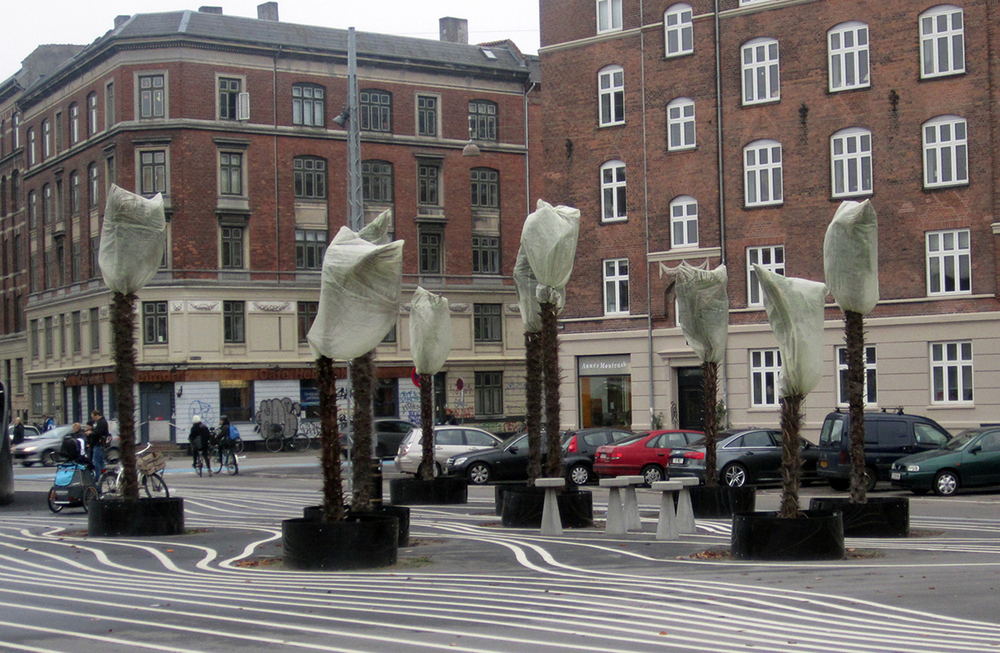
Read Brett's essay about the park.
Download our guide:
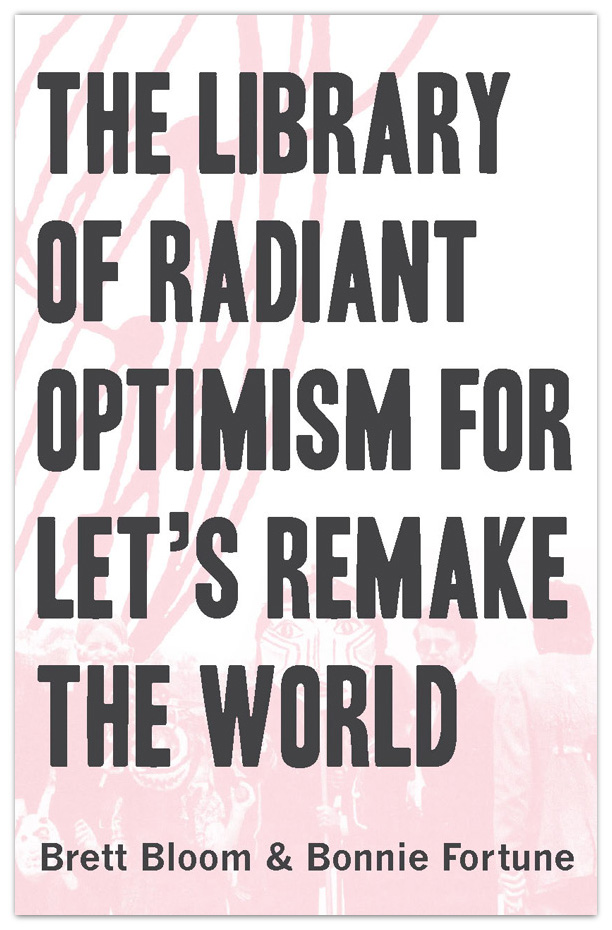
This is our guide to how-to books from the counterculture of the 60s and 70s. Click to get the download page.
Categories
- Agriculture (11)
- Animal sounds (1)
- Artist parents (19)
- Arts and culture (106)
- Bees (3)
- Book reviews (14)
- Books (18)
- Critical essays (5)
- Daily Photo (5)
- Design (36)
- Dirt (11)
- Environmental activism (43)
- Exhibitions (24)
- Farms (11)
- Forest (7)
- Friday connect (15)
- Growing (42)
- Habitat (38)
- Homesteading (16)
- Interviews (15)
- Kitchen (14)
- Living structure (9)
- MISC (15)
- Mythological (2)
- Neighborhood (83)
- Ocean News (1)
- Our Art Work (21)
- Personal – Design/Art (3)
- Play (2)
- Playground (4)
- Projects (21)
- Public space (53)
- Resilience (13)
- Sea Side (2)
- Sojabønner (2)
- Tofu (8)
- Vermont correspondence (7)
- Water (3)
- Wednesday picture (31)
- Workshop (1)
Video interview:
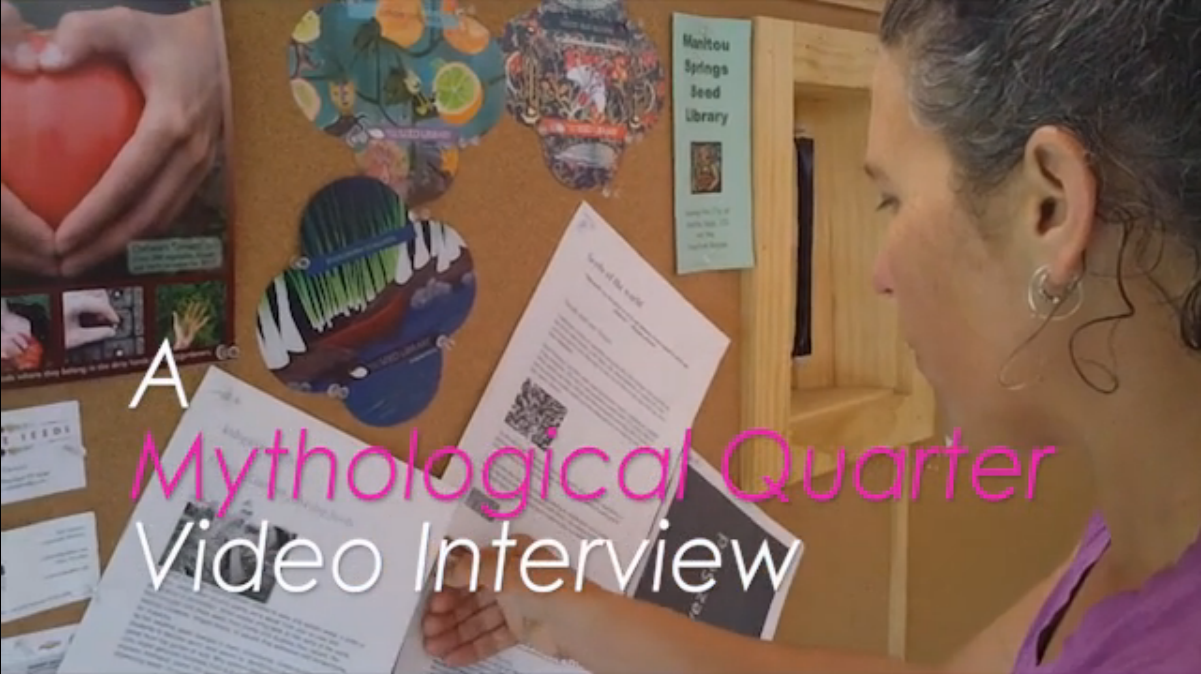
Watch our interview of SeedBroadcast, a mobile project that is part seed library and part seed-saving-story-collecting machine-recording the stories of seed saving, farming, and food sovereignty work being done around the US.
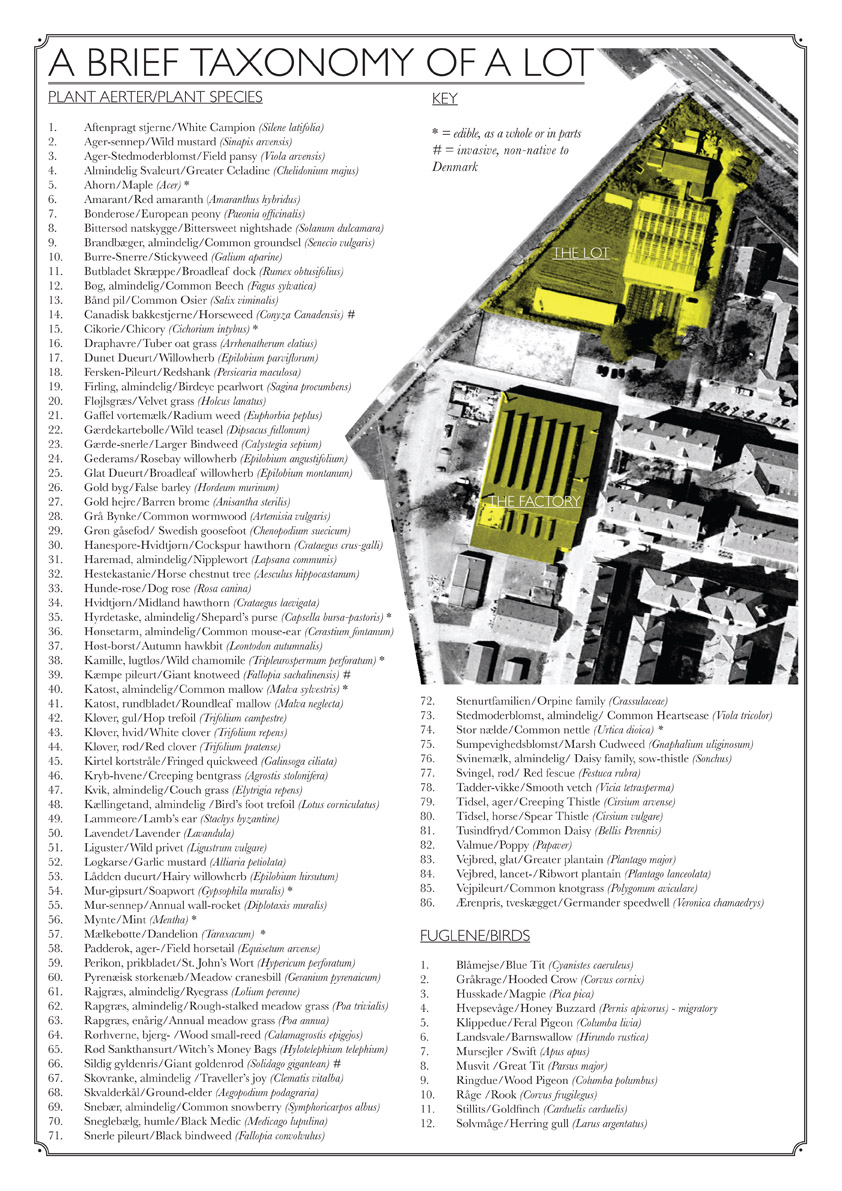
Download a poster Bonnie made about biodiversity in a vacant lot in the Amager borough of Copenhagen, in collaboration with biologist, Inger Kærgaard, ornithologist, Jørn Lennart Larsen and botanist, Camilla Sønderberg Brok: A BRIEF TAXONOMY OF A LOT

We made and installed a network of bat houses in Urbana, Illinois, to support the local and regional bat population, but also to begin a conversation about re-making the built environment.
READ MORE
BOOK REVIEW:
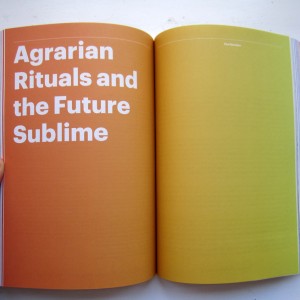
We write often about artists and art groups that work with putting ‘culture’ back in agriculture. Here is a new favorite: myvillages, a group of three women based in Germany, the Netherlands, and the UK. Read more...
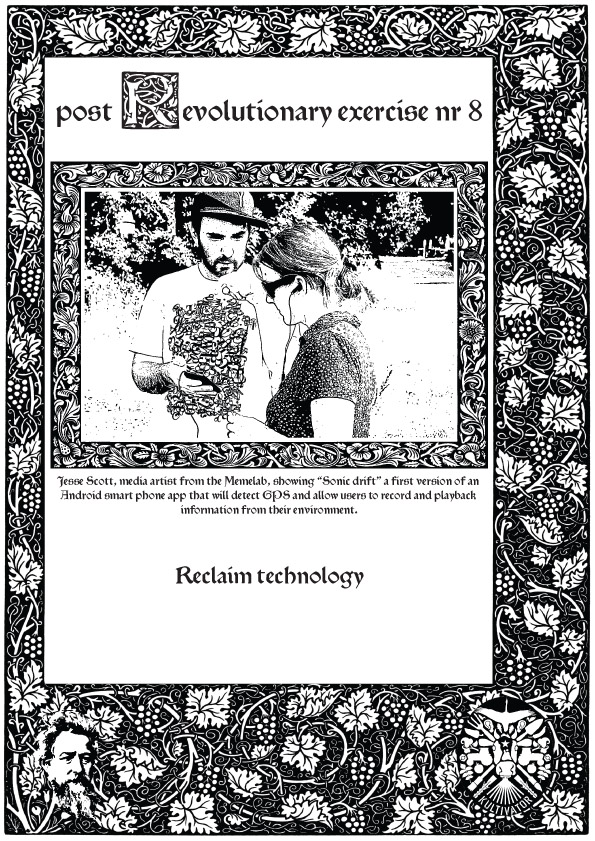
Post Revolutionary Exercises
We really admire the dedicated hard work of Kultivator who seeks to fuse agriculture and art in their work. Click this sentence to get a PDF of their poster collection called "Post Revolutionary Exercises."
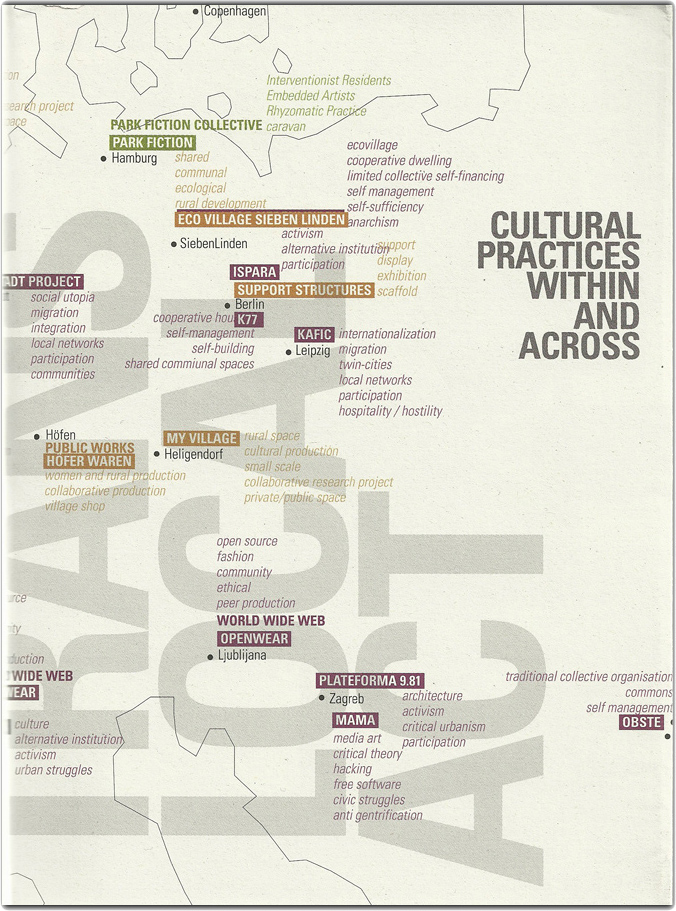
Cultural Practices Within And Across
This amazing book networks urban and rural resilience and sustainability projects around the world. Deeply inspiring projects in Romania, Paris, San Francisco, and elsewhere.
• Read our review of the book.
• Buy the book.
• Download the book.

